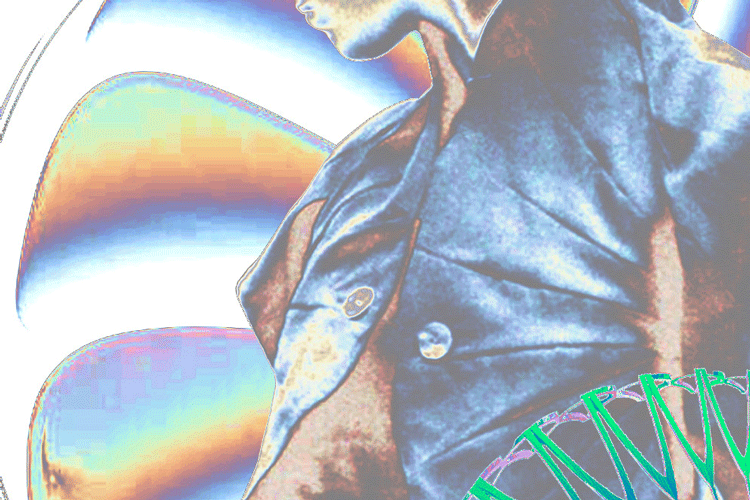Stefan Vidler is a PhD Student within the Digital Anthropology Lab at LCF. His PhD studies are about ‘Coded Clothing: How computational design can affect the future of the design process from a fashion perspective’. He talks to us about what it’s like being a PhD candidate at LCF and how his background in coding and clothing led him here.
Tell us about your background in coding?
I first started coding nearly 30 years ago at secondary school. I then progressed onto a BA Computer Technology and worked a range of projects including airline booking systems and traffic control systems. My recent experience is much more visual oriented including website development and app development. This will be an area I need to significantly up skill in over the next 6 months.

Why did you decided to do a PhD?
I’ve been a practicing fashion designer and lecturing in fashion design for the last 20 years. During this period I’ve watched the impact of technology on a number of other creative discipline to the point they are common place. However the fashion design process has remained virtually the same throughout this time, with technology mainly used to enhance the final illustration and presentation. I got to point in my life where I wanted to combine my experience in fashion and interest in technology and the future. The PhD seemed like the perfect place to bring these together and develop new skills to remain current in the ever changing world. I also thought I needed a challenge.
What is your PhD about?
‘The Digital Atelier’, a design process that uses technology, particularly generative algorithms to enhance creativity within the fashion design process. The initial practice is to develop tools and apps that will enable enhanced creativity in the development of shape and silhouettes. As the PhD progresses we are seeing the impact that automation will have on the fashion industry, and this research looks to offer an alternative. The research aims to take into account the human in the process and as the eventual consumer. One of the expected outcomes is a method that fashion design and designers can use individualised and personalised technology to develop fashion for the future with digital craftsmanship, and attention to detail we see in the traditional atelier.
Will you incorporate the use of the Digital Anthropology Lab facilities based at LCF into your work?
The Digital Anthropology Lab facilities will be crucial to the research, both in the use of equipment to support the tool and app development, but equally the interaction with, and drawing on the coding expertise of the staff team to develop the practical components of the research.
What will you be hoping to achieve in the future and how do you think it will change the design practice?
The current level of disruptive change to the society we live in will eventually have a significant impact on Fashion Design. The hope is that this research will form part of the debate of what a future fashion design process could look like. The desire is to develop ways that technology could be used to enhance creativity, in an industry that is driven by a need for faster production and increased. Stefan Vidler PhD Student Digital Anthropology Lab PhD Title: Coded Clothing: How computational design can affect the future of the design process from a fashion perspective “The PhD seemed like the perfect place to bring these concepts together and develop new skills to remain current in the ever changing world. I also wanted to challenge myself.
Find out about Research at LCF

